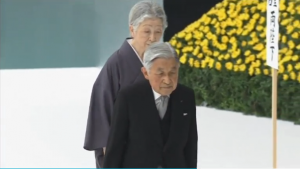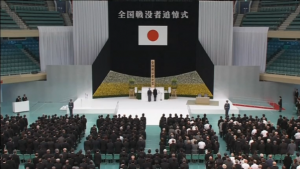
(Reuters) — Japanese Emperor Akihito on Saturday (August 15) marked the 70th anniversary of the end of World War Two with an expression of “deep remorse” over the conflict, a departure from his annual script which could be seen as a subtle rebuke of conservative Prime Minister Shinzo Abe.
Abe on Friday (August 14) expressed “utmost grief” for the suffering Japan inflicted in the war, but said future generations should not have to keep apologising for the mistakes of the past. He offered no fresh apology of his own.
“Together with deep remorse over the war, I pray that this tragedy will not be repeated in the future and together with the people, express my deep condolences for the war dead and those who were affected, and pray for the peace and further prosperity of our country,” Akihito, 81, said at a memorial service on the anniversary of the day his father, Hirohito, announced Japan’s defeat.

The soft-spoken Akihito has often urged Japan not to forget the suffering of the war and tried to promote reconciliation with Asian countries. His comments have attracted increased attention at a time when Abe appears to be pushing for a less apologetic tone towards Japan’s past.
Akihito had expressed remorse previously but not at the annual service. The emperor is banned by the constitution from any political role, so his remarks need to be carefully nuanced.







